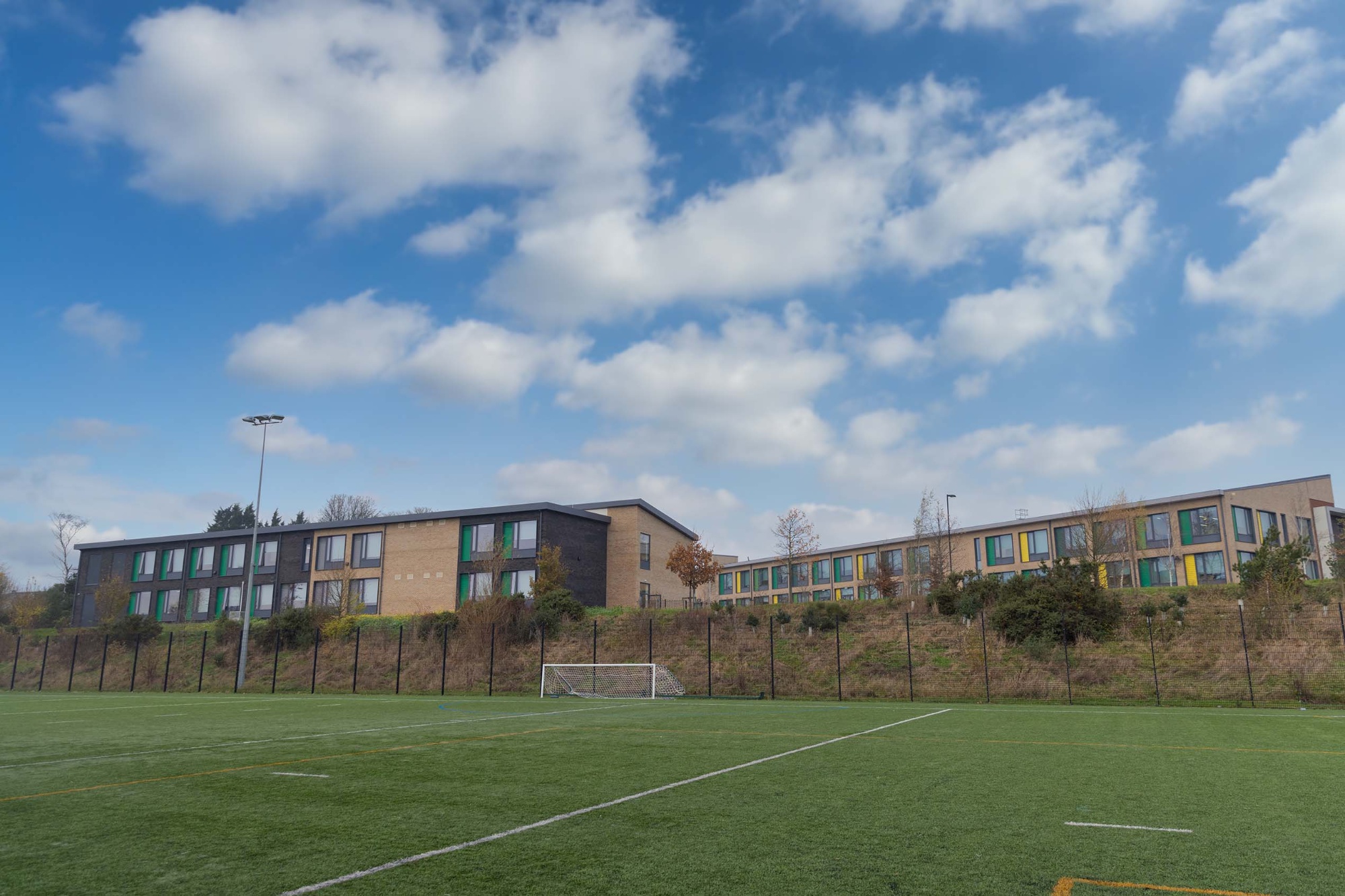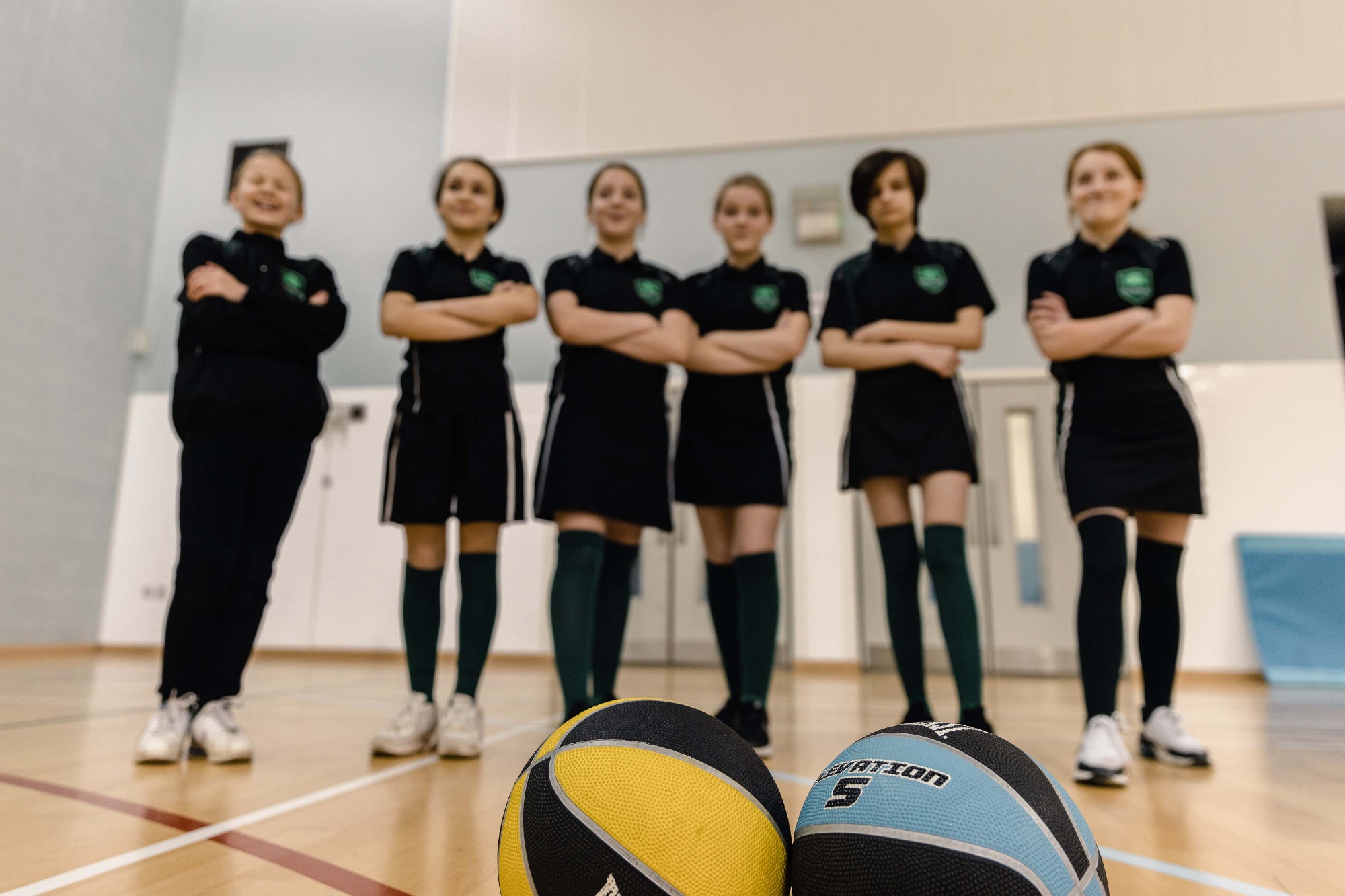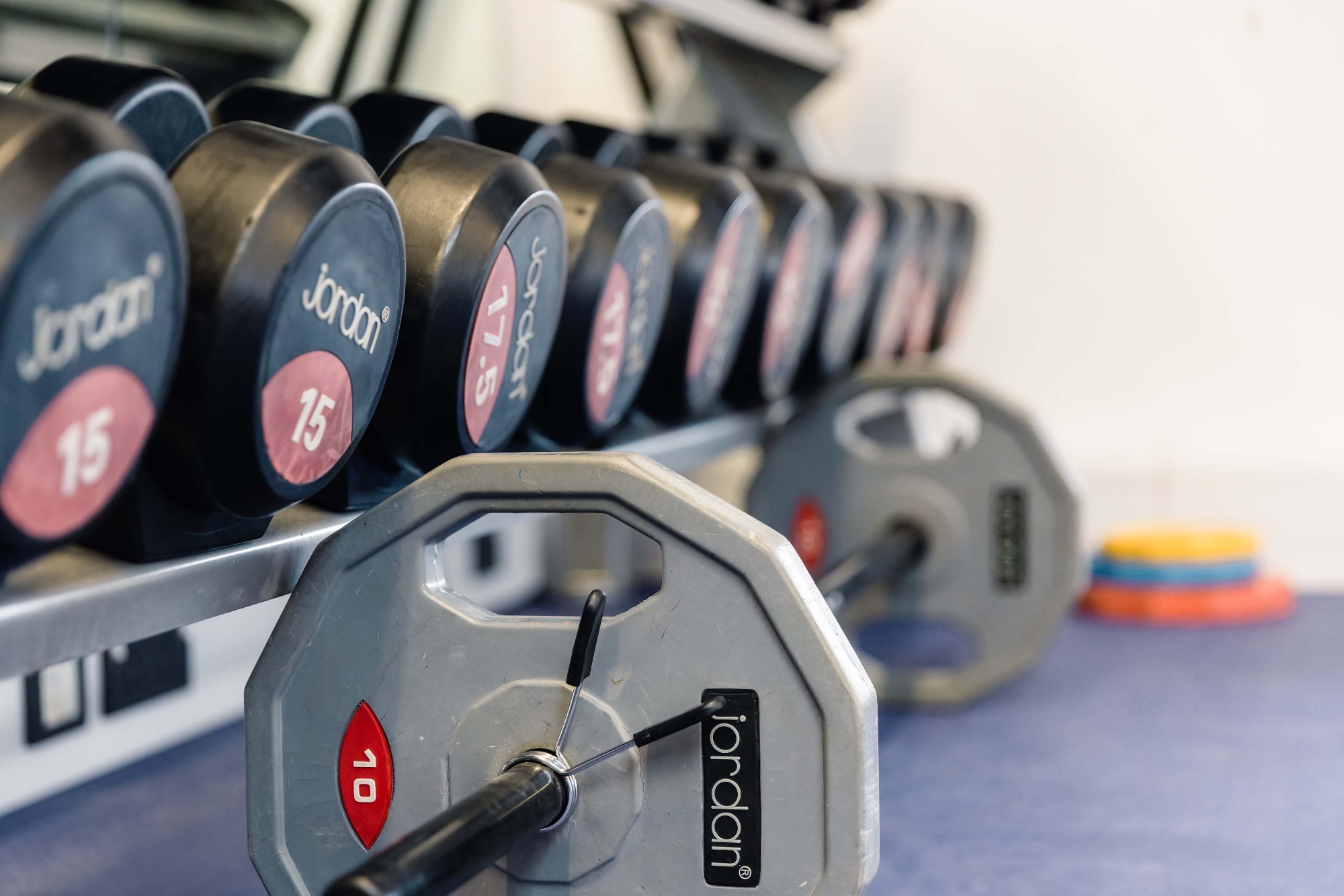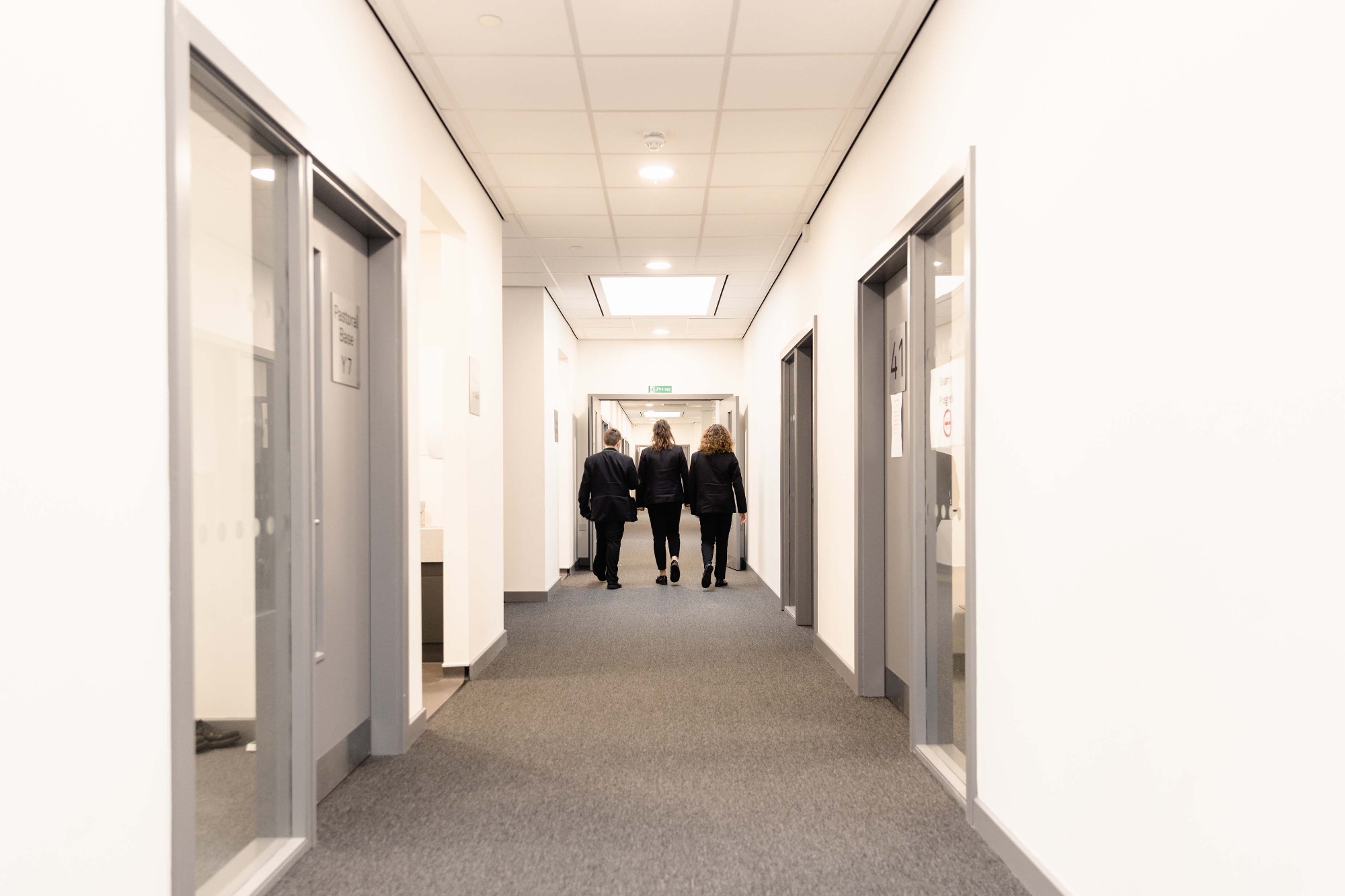.
Learning Journey ks3 computing
learning journey ks4 computer science
learning journey ks4 CREATIVE imedia
Year 7
Autumn Term – Impact of Technology
Students will explore ways to use a range of technologies safely, respectfully, and securely. Students will develop an awareness of their online identity and ways to protect themselves against threats online and know the ways to report concerns online to the appropriate organisations. Elements learnt in the impact of technology will ensure safe use of technology in and out of School.
Spring Term – Modelling Data (Spreadsheets) and Programming essentials in Scratch – part 1
Modelling data (Spreadsheets) – Students will develop skills in Microsoft Excel. Students will explore ways technology can be used to categorise data and information into useful spreadsheets which can be used to model real world problems.
Programming essentials in Scratch – part 1 - Students will develop core knowledge in their first programming unit in KS3. Students will explore core concepts such as sequencing, variables, selection, and count-controlled iteration in Scratch 3.
Summer Term – Programming essentials in Scratch – Part 2 and Using Media – gaining support for a cause
Programming essentials in Scratch – part 2 - This unit begins right where ‘Programming I’ left off. Students will build on their understanding of the control structures’ sequence, selection, and iteration (the big three), and develop their problem-solving skills. Students will learn how to create their own subroutines, develop their understanding of decomposition, learn how to create, and use lists, and build upon their problem-solving skills by working through a larger project at the end of the unit.
Year 8
Autumn Term – Computing systems and Developing for the web
Computing systems – This unit takes learners on a tour through the different layers of computing systems: from programs and the operating system to the physical components that store and execute these programs, to the fundamental binary building blocks that these components consist of.
Developing for the web - In this unit, learners will explore the technologies that make up the internet and World Wide Web. Starting with an exploration of the building blocks of the World Wide Web, HTML, and CSS, learners will investigate how websites are catalogued and organised for effective retrieval using search engines. By the end of the unit, learners will have a functioning website.
Spring Term – Introduction to Python
Introduction to Python - This unit introduces learners to text-based programming with Python. The lessons form a journey that starts with simple programs involving input and output, and gradually moves on through arithmetic operations, randomness, selection, and iteration.
Summer Term – Media – vector graphics and mobile app development
Vector Graphics – Vector graphics can be used to design anything from logos and icons to posters, board games, and complex illustrations. Through this unit, students will be able to better understand the processes involved in creating such graphics and will be provided with the knowledge and tools to create their own.
Mobile App Development - In a world where there is an app for every possible need, this unit aims to take the learners from designer to project manager to developer to create their own mobile app. Using App Lab from code.org, learners will familiarise themselves with the coding environment and have an opportunity to build on the programming concepts they used in previous units before undertaking their project. Learners will work in pairs to consider the needs of the user; decompose the project into smaller, more manageable parts; use the pair programming approach to develop their app together; and finish off by evaluating the success of the project against the needs of the user.
Year 9
Autumn Term – Cybersecurity and Media – Affinity Photo
Cybersecurity - This unit takes the learners on an eye-opening journey of discovery about techniques used by cybercriminals to steal data, disrupt systems, and infiltrate networks. The learners will start by considering the value of their data to organisations and what they might use it for. They will then look at social engineering techniques used by cybercriminals to try to trick users into giving away their personal data. The unit will look at the more common cybercrimes such as hacking, DDoS attacks, and malware, as well as looking at methods to protect ourselves and our networks against these attacks.
Affinity Photo - In this unit, learners will first develop pre-production skills used in the digital media industries focusing on photo manipulation. They will learn the importance of understanding the client’s requirements, planning, developing time frames and deadlines, and the techniques involved in these processes. Learners will then progress to learn about several different software tools used within this sector and learn how to use them to fulfil basic client briefs. Learners will then apply this knowledge and develop their own digital media creation from a set of provided briefs. They will present their creation to the group and assess each other’s projects in terms of their effectiveness at meeting the aims of the brief.
Spring Term – Media –Affinity Photo and Physical computing
Affinity Photo – In this unit, learners will first develop pre-production skills used in the digital media industries focusing on photo manipulation. They will learn the importance of understanding the client’s requirements, planning, developing time frames and deadlines, and the techniques involved in these processes. Learners will then progress to learn about a number of the different software tools used within this sector and learn how to use them to fulfil basic client briefs. Learners will then apply this knowledge and develop their own digital media creation from a set of provided briefs. They will present their creation to the group and assess each other’s projects in terms of their effectiveness at meeting the aims of the brief.
Physical Computing - In the first half of the unit, learners will get acquainted with the host of components built into the micro:bit, and write simple programs that use these components to interact with the physical world. In the process, they will refresh their Python programming skills and encounter a range of programming patterns that arise frequently in physical computing applications.
In the second half, learners will work in pairs to build a physical computing project. Students will be required to select and design their project purposefully, apply what they have learnt by building a prototype, and keep a structured diary throughout the process.
Year 10 computer science
Throughout this year students will further develop their understanding in computing and programming as well as the fundamentals of computer science.
Autumn Term
- Boolean logic
- Units
- Data storage
- Designing, creating, and refining algorithms
- Programming fundamentals
- Data types
Spring Term
- Additional programming techniques
- Practical programming skills
- Data storage
- Architecture of the CPU
- CPU performance
Summer Term
- Embedded systems
- Secondary storage
- Network and topologies
- Wired and wireless networks
- Protocols and layers
- Mock exam
Year 10 creative Imedia
This year students will learn about the sectors, products and job roles that form the media industry. They will learn the legal and ethical issues considered and the processes used to plan and create digital media products. Students will learn how media codes are used within the creation of media products to convey meaning, create impact and engage audiences and how choose the most appropriate format and properties for different media products.
Autumn Term
- R093: Media industry sectors and products (TA1)
- R093: How style, content and layout are linked to the purpose. Client requirements and how they are defined (TA2)
- R093: Audience demographics and segmentation (TA2)
- R093: Media codes used to convey meaning, create impact and/or engage audiences (TA2)
- R093: Work planning and documents used to support ideas generation (TA3)
- R093: Documents used to design/plan media products (TA3)
- R094: Purpose, features, elements and design of visual identity
- R094: Graphic design concepts and conventions
- R094: Properties of digital graphics and use of assets
Spring Term
- R094: Techniques to plan visual identity and digital graphics
- R094: Tools and techniques to create visual identity and digital graphics
- R094: Technical skills to source, create and prepare assets for use within digital graphics
- R094: Techniques to save and export visual identity and digital graphics (with integrated R093 TA4 distribution considerations and file formats)
- R094: NEA Assessment (working on)
Summer Term
- R094: NEA Assessment (Working on and submit for moderation)
- R096: TA1 Introduction (with R093 key content embedded)
- R096: Features and conventions of animation and audio
year 11 computer science
Throughout this final year students will further develop their understanding in computing and programming as well as the fundamentals of computer science. The latter part of the year will focus on revision and exam preparation.
Autumn Term –
- Threats to computer systems and networks
- Ethical, legal, cultural, and environmental impact of digital technology
- Operating systems
- The integrated development environment (IDE)
- Languages
- Testing
- Defensive design
Spring Term –
- Practical programming skills
- Searching and sorting algorithms
- Searching and sorting practical programming skills
- Mock exam
- Revision
year 11 creative imdeia
This year will further develop students understanding of Creative iMedia and build upon knowledge and skills developed in year 10. Students will learn to plan animations with soundtracks based on client briefs. They learn to use a range of tools and techniques to create, edit and combine audio and animated content and export and review completed animation with audio products. The final stages of the course will focus on exam preparation.
Autumn Term
- R096: Pre-production and planning documentation and techniques for animation with audio
- R096: Techniques to obtain, create and manage assets
- R096: Techniques used to create animation with audio
Spring Term
- R096: Techniques to save and export animation with audio
- R096: Techniques to test/check and review animation with audio
- R096: Improvements and further developments
- R096: NEA Assessment (Working on)
- R093: Distribution platforms and media to reach audiences (TA4)
- R093: Properties and formats of media files (TA4)
Summer Term
- R093: Sources of research and types of research data (TA2)
- R093: The legal issues that affect media (TA3)
- R093: Job roles in the media industry (TA1)
- R093: Revision and mock papers/tests
- R093: Examination (Terminal unit)
Extra-curricular Activities – Computer Science
Year 10 - Computer Science drop-in sessions are available to students once a week (Wednesday) to support with revision and exam preparation. Drop-in sessions can be independent, or students can seek one-to-one support from their teacher with the use of specialist IT equipment.
Year 11 - Computer Science drop-in sessions are available to students twice a week (Thursday and Friday) to support with revision and exam preparation. Drop-in sessions can be independent, or students can seek one-to-one support from their teacher with the use of specialist IT equipment.
Extra-curricular Activities – iMedia
Year 10 - iMedia drop-in sessions are available to students once a week (Wednesday) to support with revision and exam preparation. Drop-in sessions can be independent, or students can seek one-to-one support from their teacher with the use of specialist IT equipment.
Year 11 - iMedia drop-in sessions are available to students twice a week (Thursday and Friday) to support with revision and exam preparation. Drop-in sessions can be independent, or students can seek one-to-one support from their teacher with the use of specialist IT equipment.
G. Williams, Subject Leader for Computer Science and Media





